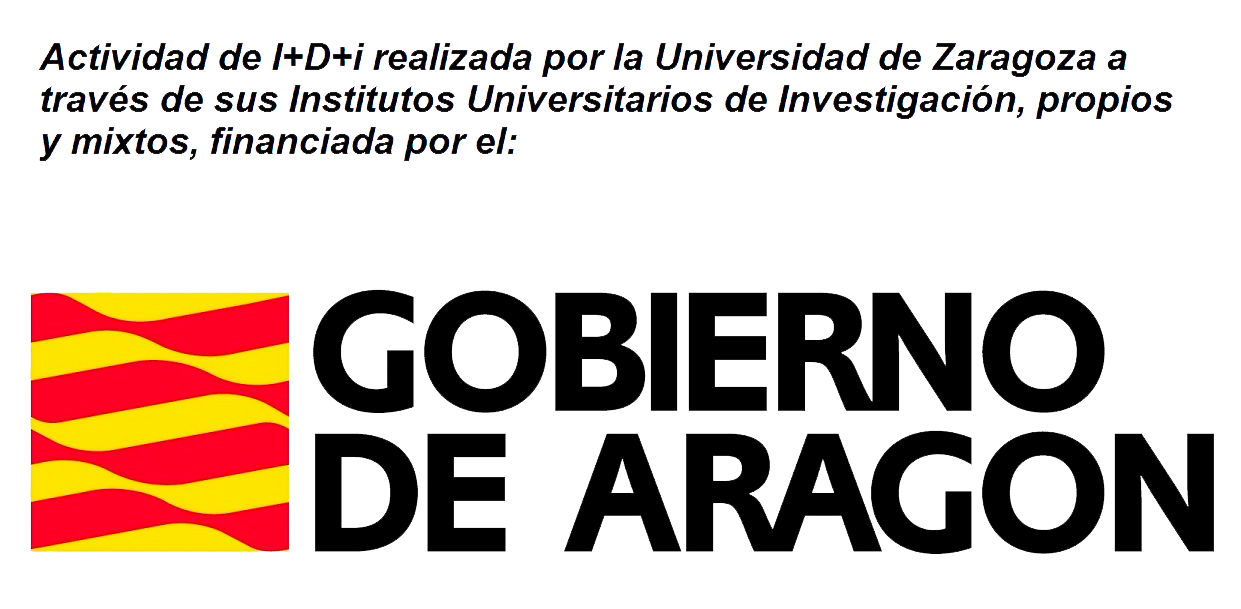BIFI consolidates its position as an international scientific benchmark on its 20th anniversary
In two decades, the 131-member University Institute for Biocomputing and Physics of Complex Systems has raised more than €56M, generated more than 42 patents and published more than 2,000 scientific articles.
Its multidisciplinary work is carried out in four main areas: Biophysics, Biochemistry and Molecular and Cellular Biology, Physics of Complex Systems and Computation and Data Science.
Zaragoza (24/10/2022). The University Institute of Biocomputation and Physics of Complex Systems (BIFI) of the University of Zaragoza celebrates its 20th anniversary, with the satisfaction of having become a scientific reference, both nationally and internationally, in 4 major areas: Biophysics, Biochemistry and Molecular and Cellular Biology, Physics of Complex Systems and Computation and Data Science.
In these 20 years, the BIFI institute, which has 131 members, of which 21 are technical staff and the rest researchers, has attracted funding of more than 56 million euros through national and European projects and has generated more than 42 patents and published more than 2000 scientific articles in high impact journals.
The results of its research range from multiple applications in biomedicine, the drugs development for infectious and neurodegenerative diseases, models for predicting the spread of epidemics, to the application of artificial intelligence to industrial and technological processes and the use of network science and complex systems for the analysis of human behaviour, among others.

This was made clear today at the institutional event held in the auditorium of the University of Zaragoza, chaired by the rector José Antonio Mayoral, and accompanied by Esther Borao, director of the Technological Institute of Aragon (ITAInnova), representing the Government of Aragon, and by the director of the BIFI, Yamir Moreno.
This was followed by plenary lectures by the president of the Spanish Biophysics Society, José María Valpuesta, research professor at the CNB-CSIC, and Ángel Sánchez, professor of Applied Mathematics at the Carlos III University of Madrid. The session concluded with the screening of the IUI BIFI video: “Basic and applied research, complexity, multidisciplinarity and future challenges“.

A Nobel Prize Winner in Physics, international promoter of BIFI
On 8 October 2002, the Government of Aragon decreed the creation of the BIFI Institute. From that moment on, biochemists, mathematicians and physicists began to work together on problems that required the contribution of each of these scientific fields, a common factor being the need for high-performance computing resources. Already 20 years ago, the University of Zaragoza, through the creation of the BIFI Institute, committed itself to one of the disciplines that is destined to play a fundamental role in the resolution of contemporary challenges: the science of complex systems. In fact, one of the international promoters of the BIFI was Professor Giorgio Parisi, Nobel Prize winner in Physics in 2021, recalled the professor and researcher Yamir Moreno, director of the BIFI.
The BIFI has 4 main areas of work that include: Biophysics, Biochemistry and Molecular and Cellular Biology, Physics of Complex Systems and Computation and Data Science, and the results of the research carried out at the institute are translated into multiple applications. Moreover, BIFI has contributed to the development of new tools and methodologies, to the analysis of natural, social and artificial systems from a systemic perspective, to the establishment of synergies between biologists, physicists and computer scientists, as well as to the training of young talents.
In this sense, more than 60 doctoral theses have been supervised and since 2015, the institute offers a Master’s degree in Biophysics and Quantitative Biotechnology, which is a reference Master’s degree at the University of Zaragoza. The numerous contributions made in Cell and Molecular Biology, Physics of Complex Systems, Complex Networks, High Performance Computing and Citizen Science, have made possible the establishment of a wide network of collaborations with important working groups beyond our borders and the publication of more than 2000 scientific articles in high impact journals.
BIFI leads, hosts and manages the Supercomputing Centre of Aragon “CESAR”, node of the Spanish Computing Network (RES), as well as the Spanish node of the European Centre for Atomic and Molecular Computation (CECAM). In 2009, BIFI promoted the creation of the Ibercivis Foundation, which is today a benchmark in citizen science, and in 2013, Kampal, a spin-off of the University of Zaragoza, was created.
BIFI currently has a powerful computing infrastructure that facilitates and speeds up the work of researchers, with cutting-edge equipment in biological areas and with the scientific preparation and maturity necessary to face future challenges and the demands of today’s society. In a dynamic world in constant change and evolution, the institute is firmly committed to continue moving in this direction and to consolidate its leadership position, always promoting an open and innovative scientific culture.

More info:
Carmina Puyod (UCC Unizar): (+34) 660 010 349










